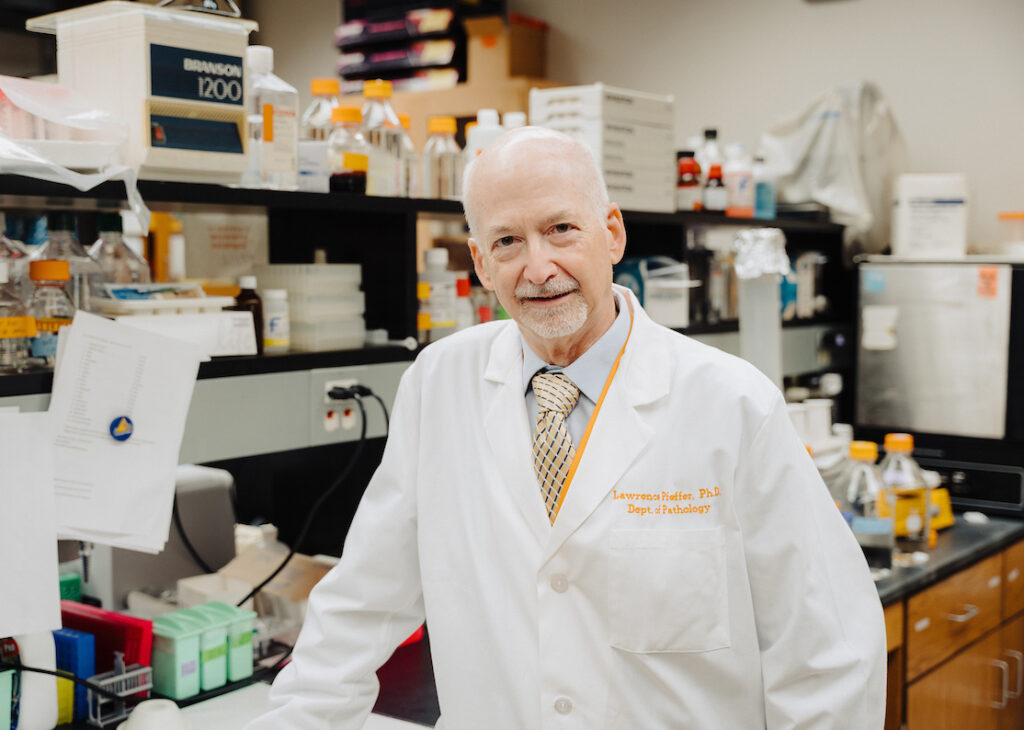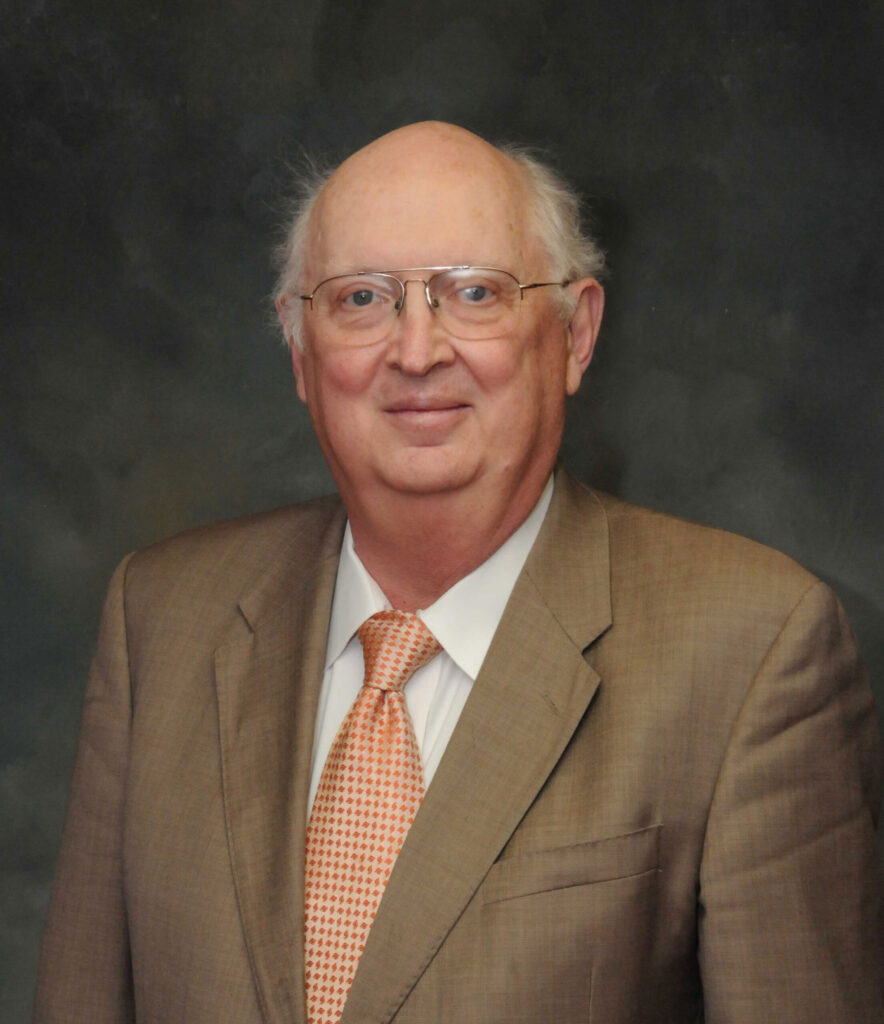Perseverance, passion, and partnership are three words to describe the work of Lawrence Pfeffer and Duane Miller, researchers from the University of Tennessee Health Science Center, who have spent the last decade and a half studying treatment options for glioblastoma, an aggressive, lethal form of brain cancer.

We had gotten close to being funded, but it got to the point where I wasn’t sure it was worth doing anymore. I’m no spring chicken,” said Pfeffer. “But people, including Miller, told me it wouldn’t hurt to try once last time. And you know what? We got funded.”
Pfeffer is a professor in the Department of Pathology and the vice-chair of Experimental Pathology; Miller is a professor emeritus in the Department of Pharmaceutical Sciences. This summer, the National Cancer Institute (NCI) awarded them $2.56 million over five years to continue researching what Pfeffer coined “Therapeutic Enhancing Drugs” (TEDs) for glioblastoma.

To be honest, I thought it was a joke — I thought it was a mistake,” said Pfeffer. “I checked the screen every day for two or three days to see if I read it wrong. I couldn’t believe that we finally got funded. It was just a shot in the dark, but we convinced them it was worthwhile.”
Their persistence stems from deeply personal motivations. Pfeffer began studying the disease decades ago after a friend died of the disease in the mid-1980s. Miller lost several loved ones to cancer and issues caused by emphysema medication.
It became my quest because I always had in the back of my mind that I wanted to do something about cancer that would make a big difference,” said Pfeffer. “I don’t think I’ll make a penny out of this, but I really hope that someday in the near future, someone could say that our work made a difference.”
With the NCI grant and support from the University of Tennessee Research Foundation, they hope to move their drug closer toward clinical trials and eventually treat their target population.

If you want to talk about a disease that will shorten your life, glioblastoma will do it,” said Miller. “If we can make just a little bit of an improvement and let people live a little longer, I think that would be very nice. It may be the one out of a million treatments that works.”
Pfeffer and Miller could not be more different in their initial approaches and thoughts about intellectual property and commercialization. In 2019, UTRF recognized Miller at the Innovation Awards for receiving 100 patents during his career — among other achievements.
I learned early on in life that it’s better to patent things first and then publish. I haven’t been sad about any patent I’ve disclosed,” said Miller. “UTRF has been very supportive of our research and getting patents.”
In contrast, Pfeffer was unfamiliar with the patent process before coming to UTHSC and working with Miller. Between Miller’s encouragement and his work with UTRF, he’s become more “entrepreneurial-minded.”
Now, when students have a clever idea or find something in the lab that looks promising, I tell them to write up a disclosure and reach out to UTRF,” said Pfeffer. “I like basic science, but the goal is to do something to impact patients. And the only way you can do that is to have financial support from a company that gets excited about your work.”
Over the years, Pfeffer and Miller have also received Maturation Grants to support their research and believe in the value of this tool for developing technology or research avenues.
It’s good to have a good idea, but what do you do with it? Maturation Grants help you answer that,” said Miller.
UTRF’s annual Maturation Grant funding program assists inventors by awarding up to $15,000 to selected proposals. Maturation Grants are UT researchers, faculty, staff and students at all campuses and institutes.
I admire the passion and perseverance of innovators like Pfeffer and Miller. Their partnership showcases the value of not giving up and remaining focused on transitioning great ideas out of the lab,” said Vice President of UTRF Kusum Rathore. “Maturation Grants are one way UTRF helps inventors like Pfeffer and Miller mature their technology and impact the world around them.”
In the past 15 years, UTRF has awarded over $1,000,000 in grants to more than 100 projects. Proposals are due to the campus research office by Oct. 20, 2023, at 5 p.m. Learn more on the program’s website.